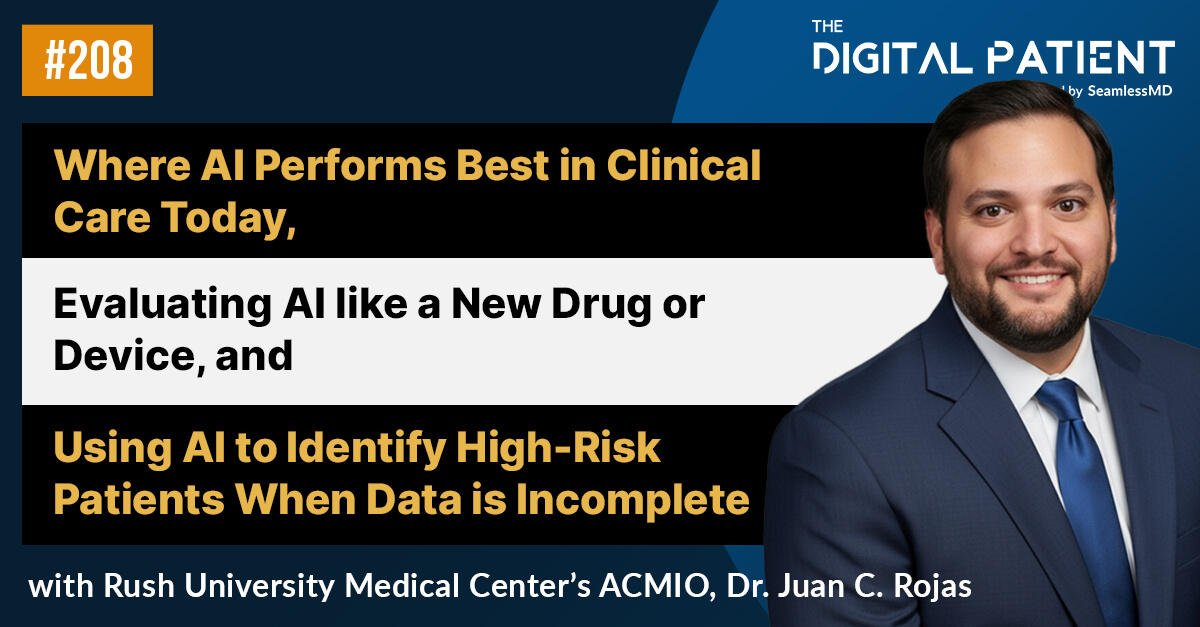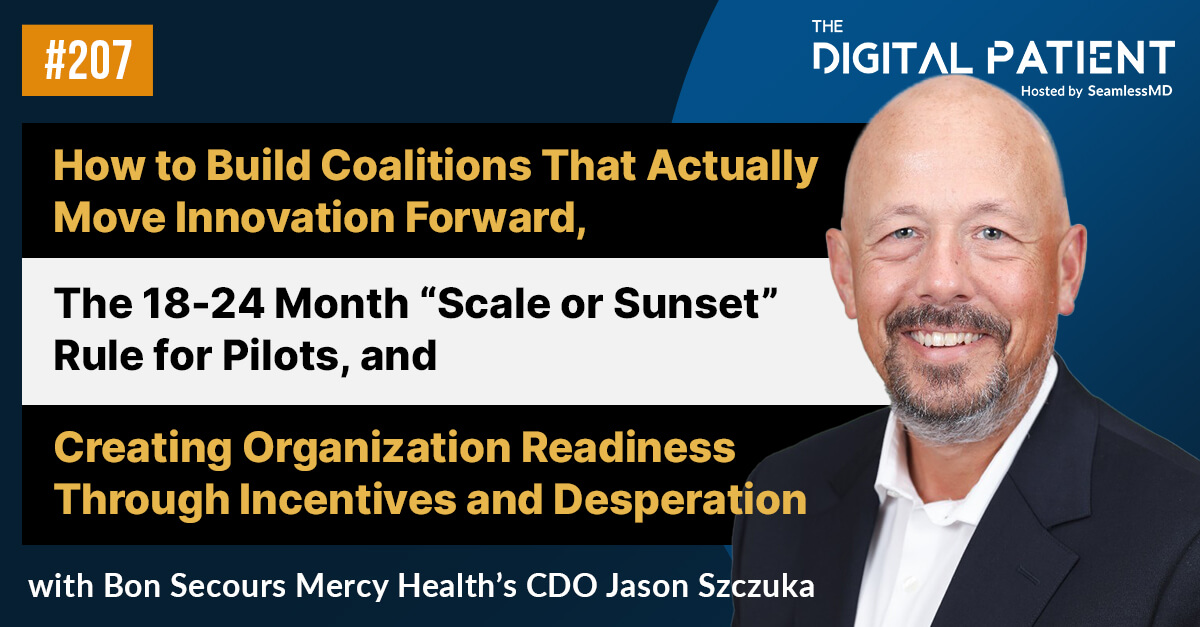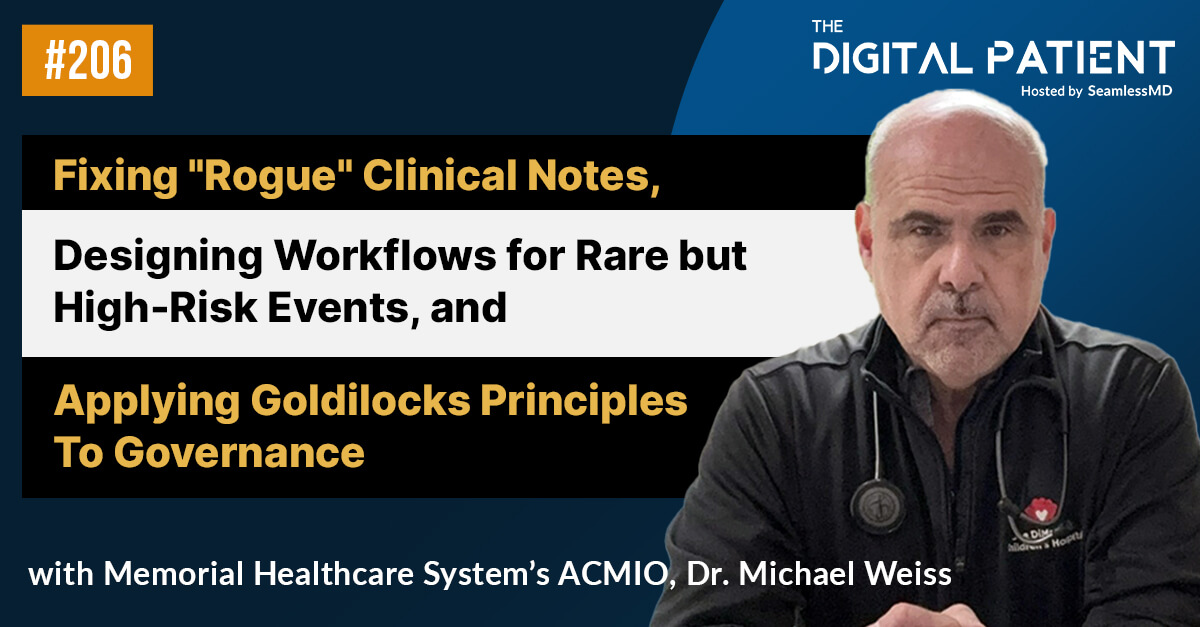Subscribe on: | | | | |
‍
‍
Video:
‍
‍
In this episode of the °µÍřĘÓƵ Podcast, Dr. Joshua Liu, Co-founder & CEO at °µÍřĘÓƵ, and marketing colleague, Alan Sardana, chat with Daniella Lock, BHSc, MSc, Patient Education Specialist at °µÍřĘÓƵ about Using Digital Patient Engagement for Spine Surgery. See the full show notes below for details.
Guest(s): Ms. Daniella Lock, BHSc, MSc, Patient Education Specialist at °µÍřĘÓƵ, Dr. Joshua Liu (), Co-founder & CEO at °µÍřĘÓƵ
‍
‍Episode 47 – Show notes:
‍
[0:00] Introducing Ms. Daniella Lock, BHSc, MSc, Patient Education Specialist at °µÍřĘÓƵ, where she designs evidenced-based digital care plans for patients;
[1:49] How Digital Patient Engagement works for patients and providers by engaging & monitoring patients through their surgical journey via smartphone, tablet or desktop computer. Patients receive reminders, interactive education and are empowered to track their progress;
[3:44] How patients undergoing spine surgery are mainly concerned with how well they will be able to cope after receiving a surgery that is meant to reduce severe symptoms. Spine patients tend to have severe pain that is often debilitating, impacting daily activities and overall happiness;
[5:26] How °µÍřĘÓƵ’s spine surgery digital care plan has two distinct pathways (cervical spine pathway and lumbar spine pathway) that are further categorized into either depression surgeries or fusion surgeries. Fusion surgeries are often associated with a longer recovery time and length of stay;
[7:39] How there are unique educational elements built into the program that emphasize specific post-spinal surgery precautions and provide step-by step instructions on how to safely complete daily activities. Spinal-specific survey questions are also unique to this program to ensure that the right questions are being asked so that the proper recommendations can be made for a more effective recovery;
[13:50] How °µÍřĘÓƵ tracks common issues faced by spinal patients such as infections, pain management and blood clots for early detection and efficient management of these symptoms. The platform also tracks walking, an exercise that is highly important in spinal recovery.
[17:48] How °µÍřĘÓƵ is currently working on incorporating Enhanced Recovery After Spinal Surgery protocols into the current template;
[19:00] How patient feedback thus far has been mostly positive, with patients expressing that °µÍřĘÓƵ has helped them feel more confident about self-managing recovery at home;
[20:14] How the platform more easily facilitates patient-reported outcome (PRO) collection through validated surveys such as the Oswestry disability index (ODI), allowing providers to use data to make improvements for patients;
[25:00] Why providers love that they can easily tailor the program to best fit the needs of their specific workflow;
[27:08] Why Ms. Lock loves working at °µÍřĘÓƵ, as it allows her to build programs that help improve patient care while working in a collaborative environment with a diverse team. She also loves working through challenges and reading patient feedback to help improve programs for the future;
[30:43] Fast Five / Lightning Round Questions
‍
Q1: What is your favourite book or book you’ve gifted the most?
White Chrysanthemum - Mary Lynn Bracht
Q2: How has an apparent failure set you up for greater success?
“After finishing my undergrad, my goal was always to become a physiotherapist, but by the end of my undergrad I actually didn't really feel passionate about it... it took me 2 years to find a masters program that I actually wanted to continue with, and I saw this Master’s program for health education and promotion which really opened my eyes to the many different types of jobs in healthcare.”
Q3: Would you rather have super strength, super speed or the ability to read people’s minds?
“I think I would want the ability to read people's minds if I can turn it off and on.”
Q4: What is something in healthcare you believe that others might find insane?
“T˛ą˛őłŮ±đ-łŮ±đ˛őłŮľ±˛Ô˛µ.”
Q4: Pandemic-related - What is 1 hobby or activity you’ve gotten into since the pandemic?
“Gardening, and cooking things straight from the garden.”
.svg)






